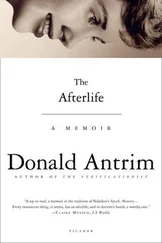If you look at the painting, you will see the dog staring out at you. If you move to the left or the right, the dog’s eyes will find you — exactly as the eyes of figures in paintings are expected to do.
The dog connects the people in the painting to the world outside the painting. It is as if Brueghel’s peasants have been cast out of the living world in order to wander through the painting.
It was Jan Brueghel the Elder’s little dog, I was sure, glaring at me from the naked back of Rebecca’s neck, when Rebecca leaned over to throw up in the open Dutch oven hanging from its strong, thin cable screwed into the Pancake House & Bar ceiling.
What could it mean to be gazed at by a lonely dog inscribed on the neck of a girl vomiting in midair? There was no way of knowing, though I suspect this manifestation of the dog provided a clue about my role as a transitional figure in Rebecca’s life.
It is important in my profession to study these kinds of signs, not as portents heralding so-called real or impending phenomena, but as indicators of unspoken predilections and attractions on the part of the beholder. Readers of symbols are forever at the mercy of desire. I saw an art-historical dog on Rebecca’s neck because I imagined Rebecca herself looking inarticulately, longingly backward, searching through metaphoric dark forests — for a man like me.
She let her hair fall from her hand. She drooled into the black pot. I held her other hand. Rebecca’s left hand was hanging in the air and her right hand was holding my left hand. Our hands were locked together. We were like a pair of worried, unpracticed dance partners. My arms were held in place by Bernhardt’s arms. Rebecca’s hair fell across her back and the dog withdrew from sight. Bernhardt lifted me in his hug. He was my father. I was able to learn from his good example, and to say, calmly, to Rebecca:
“I’m here.”
“Fuck,” she said.
She raised her head and brought up her arm and mopped, with her dress’s long, blue cotton sleeve, her face.
“Do you feel better?” I asked.
“Uhf,” she said.
“Can you try flying?”
“I don’t know.”
In no sense did Rebecca’s episode of vomiting make her less attractive to me; on the contrary, she became more beautiful and sympathetic as a character in my life.
I watched her spit.
“You have some on your chin.”
“Where?”
“There.”
Obviously, I was unable to raise my hand to her face. I wished I could have wiped her off. It would’ve been a brave, intimate gesture. I nodded my head and shifted my eyes.
“Lower,” I said.
She scrubbed with her open hand. With her other hand she held tightly to my hand. Was separation as frightening to Rebecca as it was to me? Was she apprehensive of solitude?
“A little lower.”
“Lower?”
“You’ve got it,” I said.
Her eyes were watery and circumscribed with black shadows. Rebecca’s lips were red.
“You’re beautiful,” I told her.
“I’m sick.”
“We’ll take things slowly,” I promised.
And we did. I gave Rebecca plenty of time to catch her breath, to clean up or at least pat her hair into place and wipe her mouth, that sort of thing, and then we began, hand in hand, a clockwise circuit of the room. Along the way I pointed out people below, telling Rebecca their names and embellishing their stories with friendly Institute gossip, occasionally waving and smiling if the person under scrutiny happened to look up and spy us gliding through the air above everyone’s heads.
“That’s Elizabeth Cole. She’s in her third marriage, to a man named Deavers who is at least half a foot shorter than she is and teaches biology at the high school. The man on her right is Mike Breuer. Mike is a former Episcopal minister. Before that he was a star running back for the Kernberg College Colonels. Now he’s a fine therapist.”
Mike saw us and smiled — as if he knew I was speaking well of him — and Rebecca whispered in my ear, “He seems like a nice man.”
“Mike is nice,” I agreed. And why not? The man is, I would say, extraordinarily friendly and companionable for an ego psychologist — it’s his Protestantism leaching through the analytic attitude, in the form of a seductive, earnest affability. People always wish to confide in Mike, because they identify him as trustworthy.
“Who’s the guy dressed like Abraham Lincoln?” Rebecca asked me. She was pointing.
“That’s Sherwin Lang.”
“Oh.”
“Sherwin is one of my favorite people,” I said.
“How come?” asked Rebecca. We were, at this point, directly above Lang’s table; and I could see, looking straight down, that Sherwin and Mike had well-defined bald spots. Sherwin, as I may have mentioned, wore his hair long and brushed back from his forehead. I saw now that this was a ruse. No amount of styling and combing will ever conceal significant hair loss. Lang’s skull was surprisingly apparent from above; and the similarity — in shape, circumference, and approximate position — between his and Mike’s baldness patterns was, I thought, striking, particularly considering the different techniques each man adopted in relation to his bald spot, and what these techniques revealed about the men in relation to one another. Mike, wearing his hair crew-cut short, appeared from overhead to be the more honest and forthright fellow — a man without evident disguises. Lang’s hair was deliberately forged into a kind of mane, combed into those high black-and-gray swells that seemed poised to crash over and swamp his white and unprotected grotto of naked head.
“Sherwin’s an interesting person,” I said to Rebecca as, together, we peered down at the drinker and the former seminarian. These two men, buddies over many years, functioned socially as complements to one another, and were therefore, in my opinion, good examples of what I like to call compatible incompatibles. How often do we see this in friends and married couples? It’s the story of Jack Sprat and his wife, that old rhyme about the economies of attracted opposites. But the fat wife/skinny husband situation also hints at the ways in which manifestly dissimilar individuals recognize in one another the most basic, hidden affinities. When we love a person who is strange to us, it is not as a rule mere strangeness that brings us into deeper affection; on the contrary, we feel moved by what is shared and historical: a certain kind of good or bad home, perhaps, the childhood full of love or the childhood without friends, a lonely mother or the father who drinks, the craving for solitude and a terror of solitude, all the exciting and providential things that make the groundwork for what we call, for lack of a better name, personality.
Was it possible that Mike Breuer, this sober father of three, with his clear blue eyes and toothy smile, found in Sherwin Lang a cathartic, operatic expression of his own dilemmas, fantasies, and fears?
And, for his part, did Sherwin “use” Mike to feel more at home in the world?
And where did I fit in? How did my career as a balding man correspond to Sherwin’s, to Mike’s? Peter Konwicki, one table over from Sherwin, showed baldness of a comparatively different sort — sweeping and absolute, as if the treacherous workings of Konwicki’s mind obviated the need for hair in any style or amount. I cautioned Rebecca, “That man over there wants to destroy me. He claims to like children, but he’s a fiend.”
Rebecca squeezed my hand. It felt to me that we were growing closer up here in the air, and so naturally I wondered if it would be appropriate for me to warn her, as well, about myself.
“Uh, listen,” I began; then blathered, somewhat maniacally, at the waitress, “I’m confused. I don’t know what I want. Do you understand what I mean? How could you? You’re young and you have life ahead of you. I act like a baby in public. I spit water at my colleagues. I prop trash cans against their doors so that the trash will spill into their offices, then I knock and run down the hallway. I think it’ll make me happy to play these tricks, and people will laugh, but no one ever appreciates my jokes, and I wind up depressed. Later I break down in tears during important meetings. My marriage is in trouble. The problem is that I don’t know how to be a man. I’m the right age to be a man, but does that make me a man? Jane puts up with my ridiculous theories about — about — everything under the sun! Why am I so afraid of children? Why can’t I talk to Jane about a child? Is it because I want to be the child? I want to be the child! I want to be the child! Why do I think I can help people? Children can’t help people! Children are the ones who need help!”
Читать дальше












